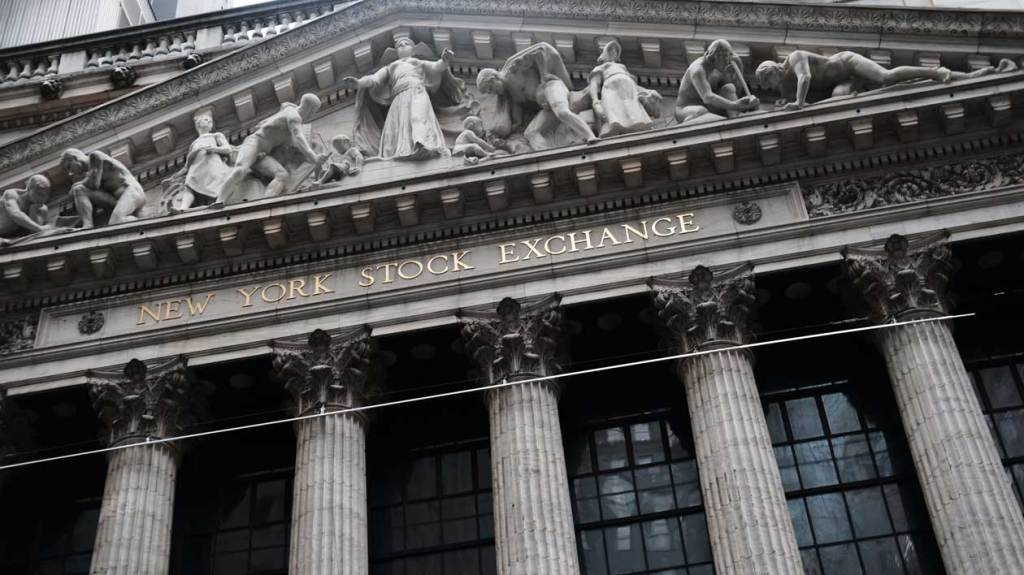Live Nation, Warner Music Group and Spotify helped rally music stocks this week as global markets bounced back from a disastrous previous week.
The Billboard Global Music Index rose 3.2 percent to 1,800.75 to recover nearly two-thirds of the previous week's losses. Last week, only three of the index's 20 stocks were winners. This week, 11 stocks ended in positive territory while nine lost value. The seven multi-sector companies — recorded music, publishing and agencies — had an average gain of 2.3 percent. Six streaming companies had an average profit of 2.6%.
Major indexes also posted gains after last week's slump. In the United States, the Nasdaq jumped 6.0% to 17,683.98 and the S&P 500 rose 4.0% to 5,626.02. In the UK, the FTSE 100 rose 1.1% to 8,273.09 points. South Korea's KOSPI composite index improved 1.2 percent to 2,575.41. China's Shanghai Composite was an exception, falling 2.2% to 2,704.09, its lowest close since February 5, 2024.
Concert promoter Live Nation jumped 6.5% to $98.82 on Friday, its best close since May 22 of $101.40. CEO Michael Rapinoe gave investors a compelling narrative about Live Nation's past, present and future at Goldman Sachs' Communacopia & Technology Conference on Tuesday (September 10). Speaking about the potential for growth outside the US, Rapino talked about acquiring the model used in Austin, where he built the Moody Center (in partnership with Oak View Group) and is getting a “25+ percent return on capital.”
While the U.S. is packed with arenas because of basketball's popularity, soccer-dominant Europe and South America don't have the same infrastructure, Rapinoe explained. Increasing presence in these areas means building venues, which provides better profits than being a venue operator. And it can be done more economically than the cost of many arenas in the U.S. “We're not building a billion-dollar chase center [the home of the Golden State Warriors basketball team in San Francisco]Rapinoe said. “We're building a $300-400 million music venue and we can get a great return on capital and expand the market. So this is our biggest opportunity.”
Following SiriusXM's merger with Liberty Media watchdog Liberty SiriusXM, the new stock — also trading under the ticker SIRI — closed at $24.51, down 10.2% after taking into account the 1-for-10 stock split .SiriusXM opened post-merger trading at $25.25 and rose 2.6% on Tuesday before hitting a high of $29.05 on Wednesday. The company said the merger of SiriusXM and Liberty SiriusXM stock was done to simplify the capital structure and support the company's future growth.
In this first press release after the merger with Liberty tracking stock SiriusXM, SiriusXM provided updated free cash flow guidance of $1 billion for 2024, down $200 million from guidance given on Aug. 1. The $200 million change reflects about $70 million of closing costs and accrual interest and about $130 million related to “historic year-over-year outflows at Liberty SiriusXM Holdings Inc. before closing the transaction'. The company left its guidance unchanged for revenue ($8.75 billion) and adjusted earnings before taxes, interest, depreciation and amortization ($2.7 billion).
Spotify gained 4.7% to $338.01, erasing most of a 5.9% loss two weeks ago. On Thursday, Guggenheim raised its estimate for fourth-quarter average monthly users and average revenue per user, and raised its gross margin estimate for the third quarter. Analysts spoke with a publishing executive who had positive things to say about Spotify's audiobook offering and its positive impact on the publishing business. Guggenheim maintained its “buy” rating and $420 price target.
Multi-sector companies performed particularly well this week. Warner Music Group gained 5.1% to $29.02 after Tigress Financial cut the price target to $44 from $52 on Thursday, but maintained a “buy” rating on the stock. Reservoir Media rose 5.3% to $7.72. Universal Music Group improved 2.9% to 23.60 euros ($26.17). Most K-pop stocks rebounded after a rough week. Although HYBE lost 1.0%, YG Entertainment gained 4.9%, SM Entertainment improved 3.2% and JYP Entertainment rose 1.7%.
A trio of streaming companies were among the week's worst performers. China's Cloud Music fell 4.7% to HKD 91.95 ($11.79). China's top music streamer Tencent Music Entertainment fell 6.7 percent to $9.52. Abu Dhabi-based Anghami fell 7.8% to $0.83.
from our partners at https://www.billboard.com/pro/labels-publishers-streamers-lead-music-stocks-rebound/
